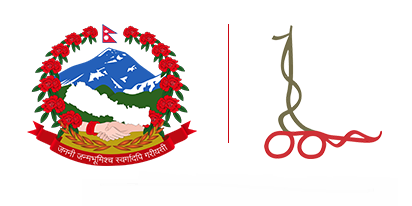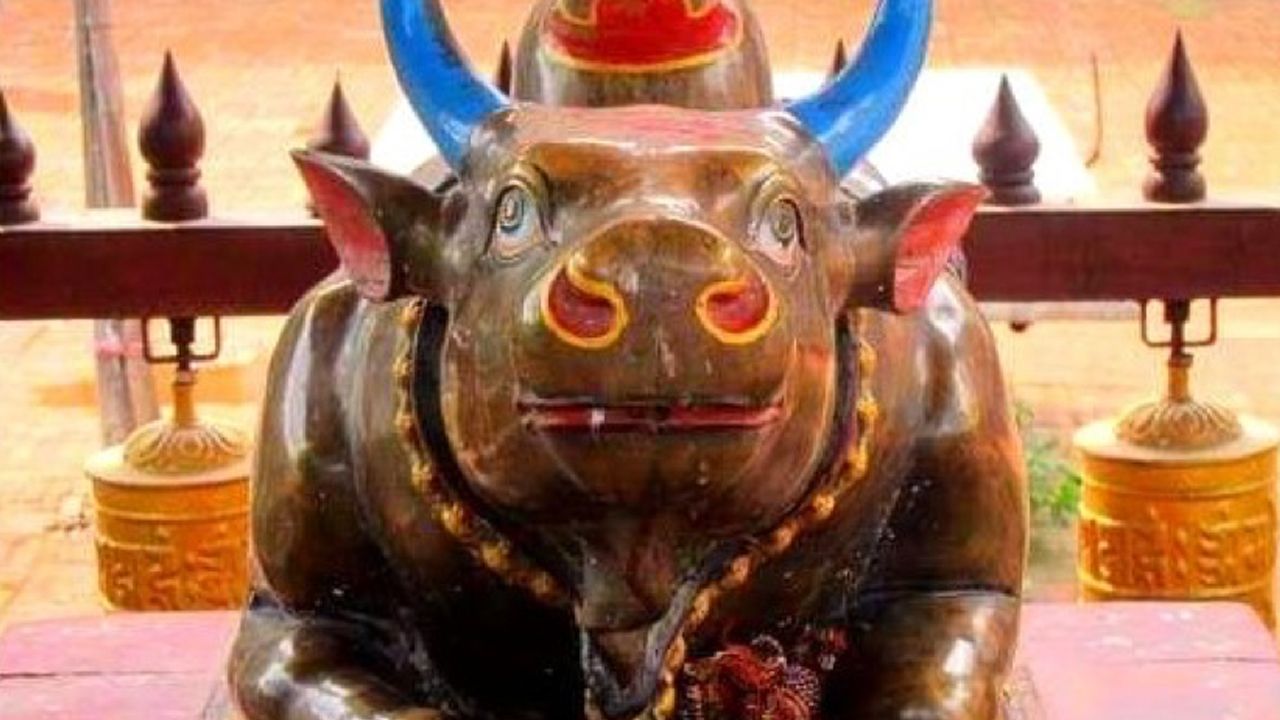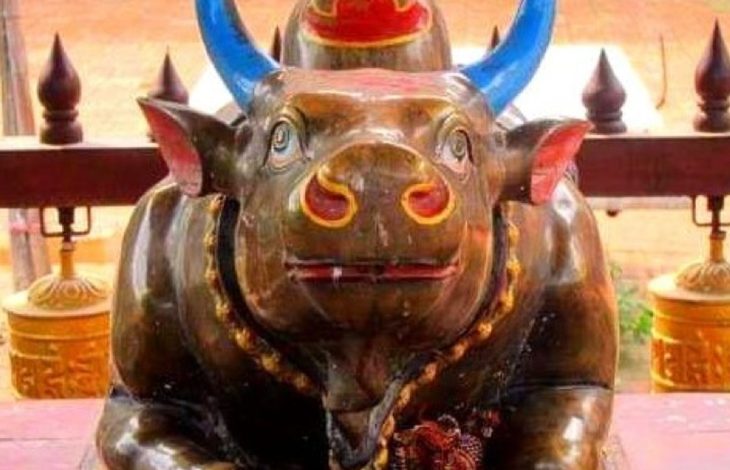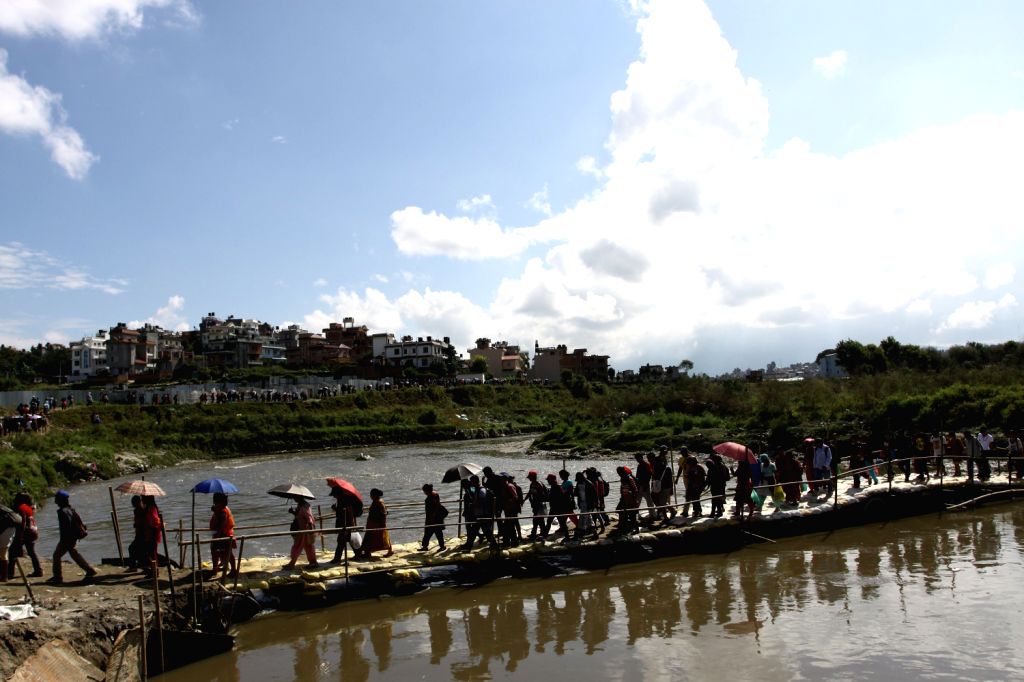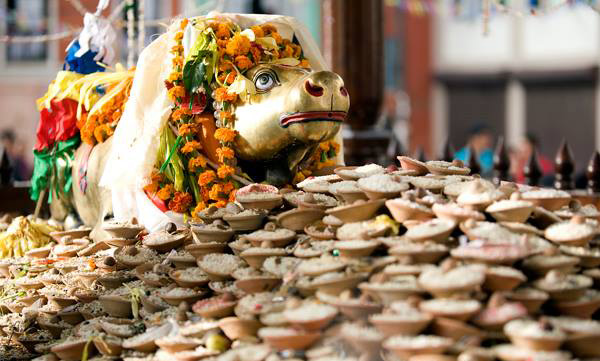
Dipankha Yatra
Dipankha Yatra is a 900-year-old longest religious walkathon of Nepal, also probably of the world where thousands of devotees walk continuously for two or more days to about 70 km with the goal of reaching more than 131 Buddhist and Hindu religious sites inside the valley. It is a religious procession of Neel Thu (Blue Horned oxen) associated with the legends of Dipankar (one of the 14 Buddhas) that takes place once in a longinterval of 8 years, 12 years or even 20 years only when five auspicious astronomical and astrological features coincide on one day according to the lunar calendar religious ceremony. It is one of the particularly important cultural festivals of Nepal as it encourages the great social and religious harmony. There is a belief that a white bull comes to the park of Nagbahal at midnight when everybody is sound asleep to eat the grass of the park which is a spiritual sign of ‘Dipankha Yatra’ coming near. According to a legend, the Dipankar Buddha gave life to the idol of Neel Thu on this very day. Sankharacharya then took the bull away from the Basu Barna Mahabihar and secretly kept in Kailash of Pashupati. Spiritual tantric rituals were performed for the bull to return to the monastery. Due to tantrism, it was difficult for the bull to stay in Kailash, therefore he stayed in Kailash for 3 months. In this course of time, he began to wander through many chaityas and temples until he was in the Yogambar mandala and finally became enlightened and settled in Nagbahal. The destinations of the present-day Yatra are the 131 holy places where the Bull resided. So, Dipankar Yatra is all about walking to the shrines and holy places where the holy Bull resided. It is also believed that a single step in the Yatra equals the virtue (Punya) gained upon offering one caret of gold. The procession will begin at Nagbahal, Patan at dawn, pass through different spots in Lalitpur and Kathmandu, namely Nakhipot, Bungmati, Khokana, then to Maru, Sitapaila, Halchowk, Swayambhu, Naxal, Boudha, and will conclude in Mahalaxmisthan, Lagankhel.
